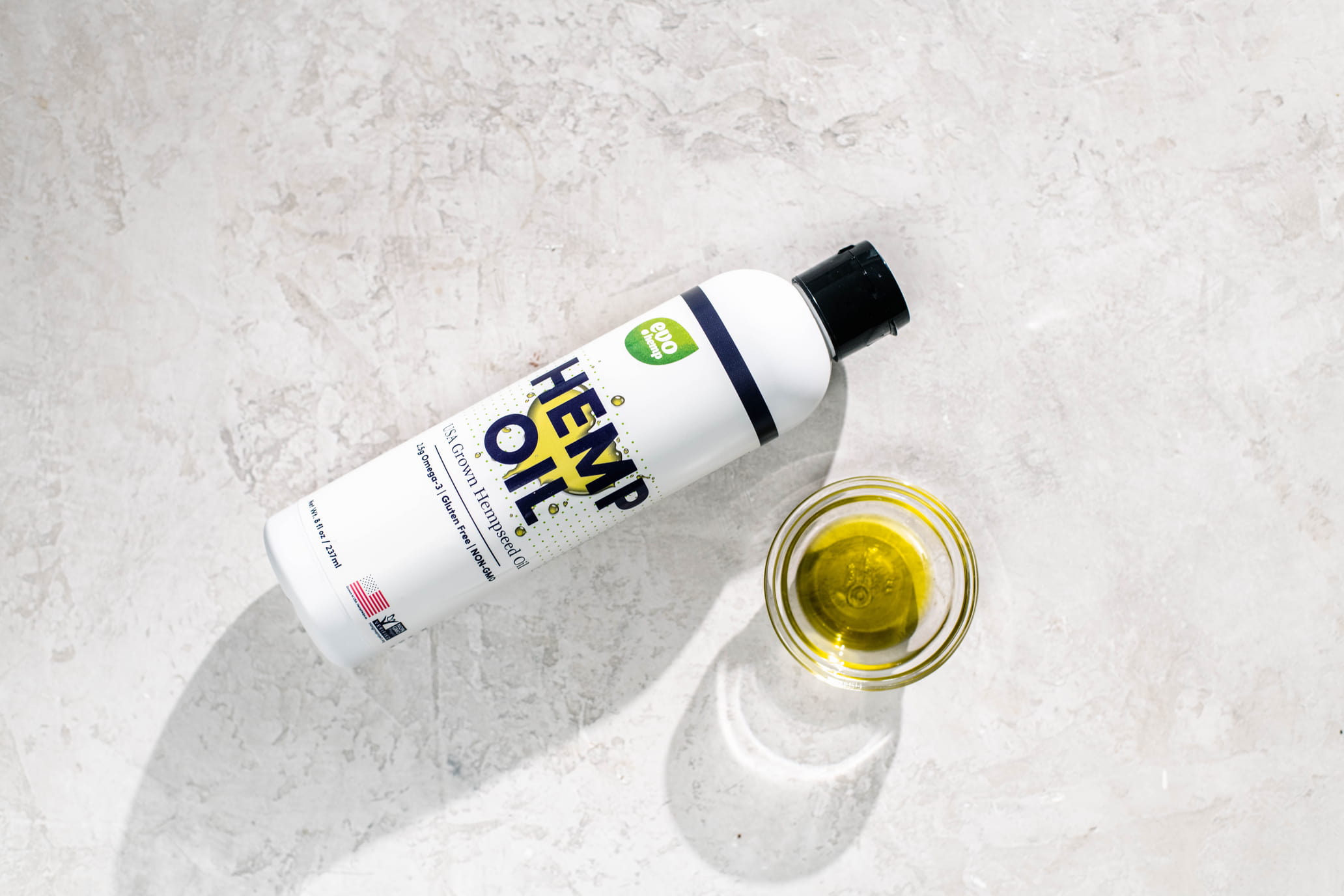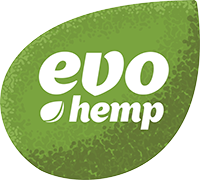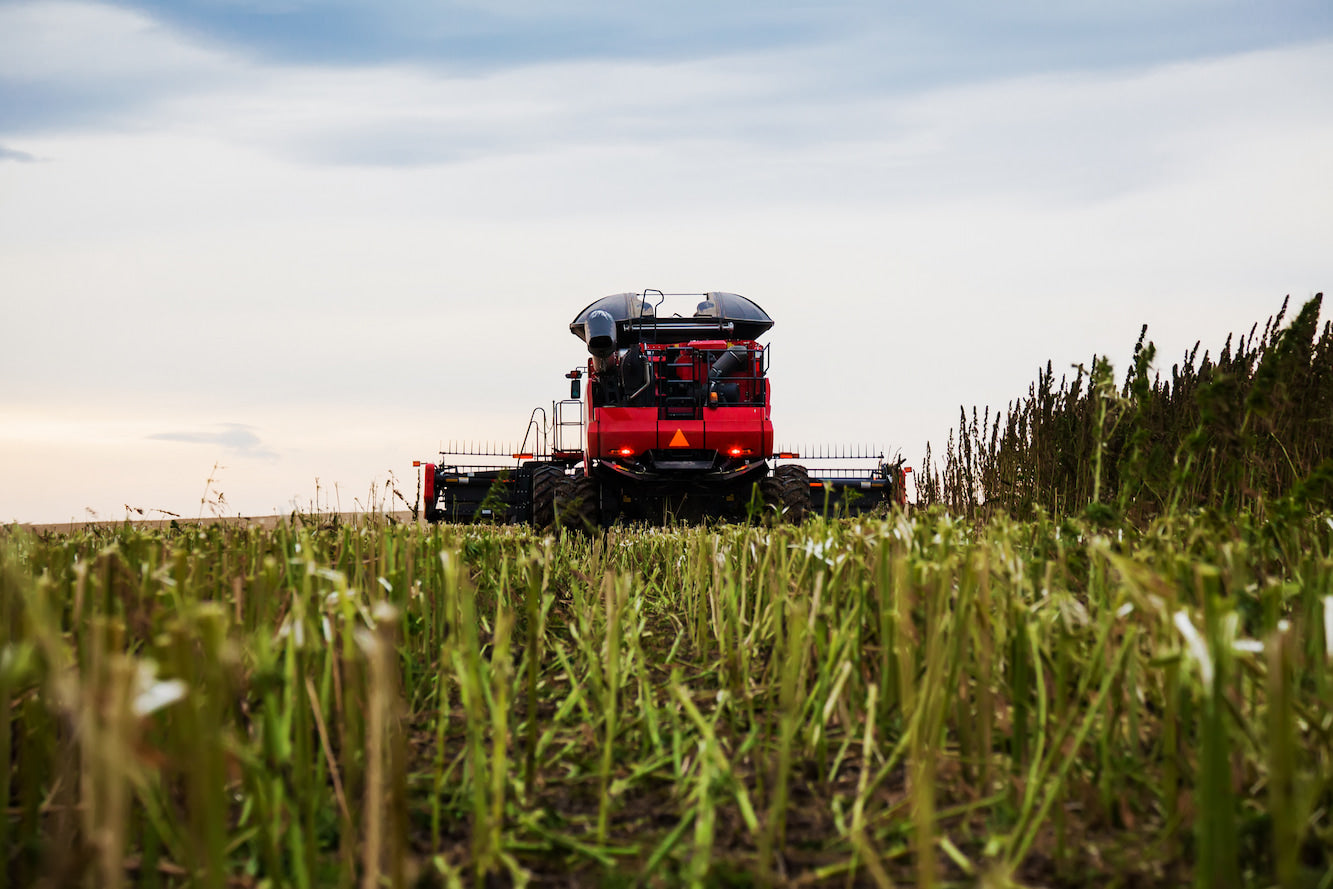Hemp Seed Oil For Skin: 4 Facts You Should Know

Many people are looking to cut chemicals and synthetic ingredients out of their self-care routines.
Why use something artificial when nature has plenty of perfectly viable solutions? Your skin is a natural living thing, and it needs compounds that come from other natural living things to maintain its health.
Instead of splurging on overpriced gimmicky skincare products, you might want to try a bottle of good old-fashioned hemp seed oil. You might find that it meets your expectations more than any expensive glass jar from the beauty counter.
Is Oil Bad for Your Skin?
Many people are hesitant to introduce nourishing oils like hemp seed oil into their skincare routines due to a longstanding myth that oil is somehow bad for their skin. Oil has developed a bad reputation, and that reputation is unfounded.
Your skin’s oil production is a form of natural defense. Without any oil, your skin would be dry, cracked, and unprotected. Signs of aging may appear prematurely due to lack of moisture in the skin, causing creasing and a rough texture.
Here’s where things get a little complicated. Some oils are considered comedogenic, which means they may clog your pores and cause comedones, also known as pimples. Every skincare ingredient has its own comedogenic rating on a scale of zero (not at all comedogenic) to five (highly comedogenic).
Cocoa butter ranks in at a four, and wheat germ oil maxes out the scales at a five. Hemp seed oil scores a zero, meaning that nearly everyone should be able to use hemp seed oil without experiencing breakouts.
What Does Hemp Oil Do in Skincare?
Hemp seed oil boasts a compatibility with skin that’s near perfect. Nearly every skin type will play well with hemp oil, and the benefits it produces suits a broad range of skincare concerns. Hemp seed oil is one of few ingredients that are just as valuable for people with oily skin as it is for people with dry skin.
1. Hemp Seed Oil Acts as an Occlusive Moisturizer
While hemp seed oil or CBD oil is moisturizing on its own, its humectant properties allow it to function perpetually. Hemp seed oil can draw moisture to the skin, trapping that moisture and allowing it to keep the skin hydrated throughout the day. While some moisturizers and body lotions will naturally “wear off” once they’ve been fully absorbed, hemp seed oil continues to work.
This benefit is particularly advantageous for people with chronically dry skin. If you feel like you have to moisturize several times a day to soothe dry patches, dry hemp seed oil. Its moisture drawing properties may reduce the number of times you feel the need to moisturize each day.
2. Hemp Seed Oil Fortifies the Skin’s Natural Barrier
Your skin is constantly exposed to the elements. It’s the first line of defense between your body and the outside world. In an effort to protect itself, your skin creates a natural barrier from fats called lipids and ceramides.
Hemp seed oil contains several valuable fats — omega-3 fatty acids, omega-6 fatty acids, and omega-9s. These omega fats work to fortify and strengthen the skin’s natural barrier, shielding it from damage and dehydration.
This barrier effectively seals in moisture, as well as any active skincare ingredients you may be using. After you apply a serum to your face and give it a moment to absorb, hemp seed oil can help to lock in the active ingredients and give them more time to work, helping to ward off fine lines and wrinkles.
3. Hemp Seed Oil Can Help to Soothe Redness and Puffiness in the Skin
The same omega fats and nutrients responsible for fortifying the skin’s natural barrier can also help to soothe irritation in the skin.
Omega fats naturally work to minimize the appearance of puffiness and irritation, but it’s important to remember that these effects don’t take place overnight. You’ll need to regularly use omega-rich skincare and incorporate omega fats into your diet to experience the full wealth of these benefits.
4. Hemp Seed Oil Can Help To Regulate Sebum Production
Many people with oily skin don’t use a moisturizer because it feels counterintuitive. If your skin is oily, how could you possibly benefit from applying more oil? Wouldn’t that make the problem worse? This is a common misconception. In truth, moisturizing can be the most valuable solution for people with oily skin.
The skin produces excess oil in an effort to protect itself. Your body is attempting to keep the surface of your skin from becoming dry, perhaps in an overzealous manner. When you moisturize, you’re keeping the top layer of your skin protected. In many cases, the skin responds by producing less sebum. It no longer senses the need to secrete oil.
When you first begin applying moisturizer or facial serum to oily skin, it may feel extra oily at first. Over time, your skin adapts to its new care routine and settles down. You’ll begin to notice the difference after a long day. You’re less likely to have breakthrough oil that leaves your skin shiny or causes your makeup (if you wear makeup) to separate or break down.
Does Hemp Seed Oil Contain CBD?
Hemp seed oil is different from hemp extract. Hemp seed oil is made from pressing the seeds of the hemp plant, and hemp extract is made by separating the active compounds of the cannabis plant from the leaves, flowers, and stalks.
Hemp only contains cannabinoids like CBD after it’s sprouted and grown. Hemp seeds don’t contain any CBD at all.
Some hemp seed oil products are infused with hemp extract. These oils are the best of both worlds. You’ll get the protective and nourishing benefits of hemp seed oil, plus the relieving benefits of topical cannabidiol (CBD).
CBD topical products boast their own unique set of benefits. While they’re valuable for your skin, they don’t work in the same way that plain hemp seed oil skincare products do.
Does Hemp Seed Oil Absorb Into Skin?
Very few oils actually absorb into the skin. Thicker, oilier products like coconut oil and cocoa butter will never absorb due to their density. Hemp seed oil is a dry oil. The skin absorbs hemp seed oil rather quickly, while the omega 3 vitamins linger behind at the skin’s surface to restore your skin’s barrier.
Hemp seed oil doesn’t leave behind a sticky residue. It won’t leave your skin feeling greasy or looking shiny after application like some body lotion. If you’re using hemp seed oil as a body moisturizer after a shower, it only needs a few minutes to absorb before you put your clothes on.
Does Hemp Oil Tighten Skin?
Be very wary of any skincare product that claims to tighten your skin. Skin naturally loses elasticity as we age. Lifestyle factors like failing to drink enough water, eating a poor diet, or frequent unprotected sun exposure can expedite this process. Once skin has lost elasticity, it cannot be restored without invasive procedures.
Some skincare products like retinol or prescription retinoids can have a modest skin tightening effect with long-term use, but they’re often very irritating. They increase sensitivity of the skin, make sun exposure painful, and can lead to chronic redness.
Prevention is the best medicine in terms of skincare. Taking great care of your body from the inside out can slow the signs of aging from appearing, or at least minimize them when they do appear.
A great skincare regimen can help to minimize the visible signs of aging once they’ve already appeared. Hemp seed oil is full of key vitamins, like vitamin E, minerals, and antioxidants.
Can I Use Hemp Seed Oil on My Face?
Hemp seed oil can be used on the face, nails, cuticles, and body. If you have a dry scalp, you can even massage hemp seed oil sparingly onto your dry patches.
Try to avoid saturating your hair with hemp seed oil. Although parched or porous hair will absorb some hemp seed oil, residual oil may drip or transfer onto your clothes, your pillow, or the back of your chair. A little goes a long way.
How To Use Hemp Seed Oil for Skin
You can use hemp seed oil as a face or a body moisturizer.
Start by cleansing and exfoliating your skin. Your skin is constantly shedding dead cells. Some of them successfully separate from the surface of your skin while others accumulate, forming a dry barrier that prevents skin care products from reaching the healthy, living layer of your skin beneath the dead cells. Dead cells leave our complexion dull and may exacerbate the appearance of the normal symptoms and signs of aging.
Products like glycolic acid, salicylic acid, and alpha-hydroxy acid are gentle chemical exfoliators that help to separate dead cells from healthy skin. Manual exfoliators, like sea salt or sugar-based scrubs, may be too abrasive for sensitive facial skin. Many people find that gritty manual exfoliating ingredients work fine for thick patches of dry skin on the body, like cracked heels or elbows.
After you’ve cleansed and exfoliated, rinse away the residue and thoroughly dry off with a towel. Your skin doesn’t need to be parched, but you don’t want water droplets lingering on the surface.
If you’re using a skincare serum with active ingredients, apply the serum first and give it a minute or two to penetrate the skin. Your hemp seed oil will create a barrier to lock in the active ingredients, which is why it’s important to apply the serum first.
Slowly massage hemp oil into your skin a little at a time. A small amount of hemp seed oil can go a very long way. It’s harder to manage an excess of hemp seed oil than it is to simply apply a little bit more. Once you’ve become accustomed to using hemp seed oil as a moisturizer, it will be easier to accurately estimate the proper amount the first time.
If you’ll be going outdoors, don’t forget to apply sunscreen as the final step of your routine. Hemp seed oil will moisturize and nourish your skin while promoting healing, but its protective and restorative abilities won’t count for much if you aren’t protecting your skin from harmful UV rays.
evo hemp’s Hemp Seed Oil
Our USA-grown hemp seed oil is the perfect addition to your skincare routine. You’re only a few drops away from moisturized, nourished, and protected skin. Use it on your face and body daily for a smooth and radiant complexion (then drizzle a little on your salad to get nourishing benefits from the inside out!).
Sources:
Comedogenicity of Oils | International Journal of Contemporary Medical Research
- Tags: sustainability



